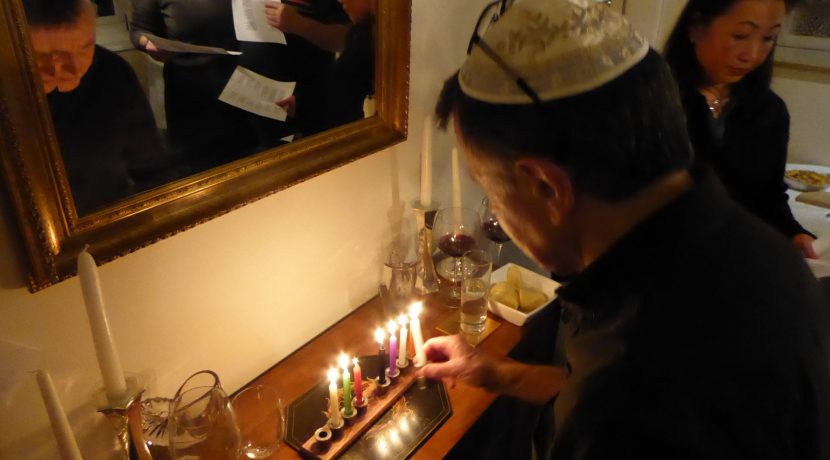The KK community representing four generations came out in droves to welcome in the 7th night of Chanukkah at a party hosted in the home of Pat an Leslie Lipert.
Dreidls were spun. Chocolate gelt was equitably distributed among young and old. Churros and donuts, latkes and salmon, salads of every description and hot vegetarian dishes were prepared by members, not to mention a myrad of scrumptious desserts to complement this most happy celebration to commemorate the victories of the Macabbees when the light of the Ner Tamid burnt for a miraculous eight days. The service was led by Vice-chairman Adam Feldman as people lit their chanukkiahs to surround the reception areas with a blaze of light piercing through the darkness.
Following the service, a moving tribute, most thoughtfully and eloquently presented by Chairman Jeremy and Mai Jacobson, was made in honour of years of service to the community to Pat and Leslie Lipert. A rare, antique Yad of either Egyptan or Syrian origin was presented to the Liperts for communal use in our services along with an attached medallion honouring their contribution to the community.
The Liperts wish to thank all members of the community who made this loving presentation possible and will, like all present and future generations of Kehlllat Kernow, take special pride whenever this yad encircling our Torah is brought out for services.Todah rabah!
Photos of this event supplied can been seen clicking by here.


